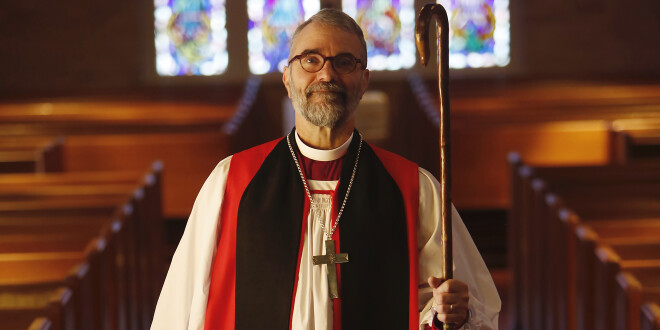Communion Matters VI: Movie Night

Or better yet, I am referring to movie nights! How does the one and constant Gospel come to have expression in a myriad of cultures across centuries and cultures? We may think of this as a modern preoccupation, and so it is. But it was not invented so recently, and some of the most creative answers came about at the very dawn of the modern era, in the 17th century. I have in mind the Roman Catholic order of the Jesuits. They were so deeply and thoroughly formed that they carried their monastery on their back, and could try some bold experiments in adaptation. They were not beyond criticism, but they always stirred up though reflection on the challenge of the Gospel.
I want to begin my description in the mode of movie and book reviews. The most famous is ‘The Mission’ with the remarkable soundtrack. The ‘kingdom of the Guarani’ was an indigenous Christians in present-day Paraguay, apart from the depredations of the Spanish and Portuguese colonialists. It embodied Francis and liberation theology at once. At roughly the same time, in present day Canada the mission to the Huron people led to torture of the missionaries, who thereupon struggled to return to their flock. They embodied missionary identification. The movie ‘Black Robe’ renders that world hauntingly. More recently the movie version of Endo’ ‘Silence’ presents the martyrs’ history of the Jesuits in Japan and raises deep questions about what fidelity looks like.
To this we could add Jonathan Spence’s ‘The Memory Palace of Mateo Ricci.’ Ricci took the road of slow adaptation wherein the missionary inhabited areas of common faith until the host culture was ready for the shock of the cross- other Catholics objected strongly! Ricci in his topknot and silk could quote Confucius with the greatest local scholar in perfect Mandarin. To this we can add Peter Phan’s ‘Mission and Catechesis’, a study of Alexandre de Rhodes’ work in Vietnam, where he used the local philosophy as toeholds into explanation of Christian doctrine, from most to least accessible.
These are settings far afield, and yet the very question that lie before in this altogether changed circumstance.
Peace
+GRS




